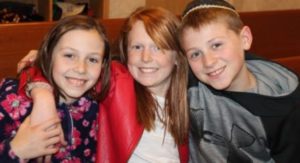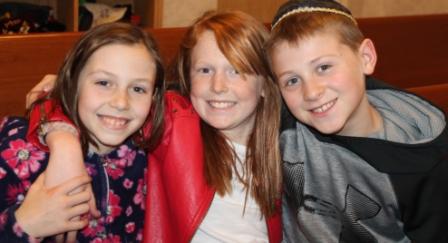 A few weeks ago, I awoke to find my inbox overflowing with emails from colleagues around the country. They were all sharing a letter, written by John Allman, the Head of Trinity School in NYC, to his families. What struck me about his letter – and the subsequent article about him in The New York Times – was not his fierce critique of cultural norms (including a troublesome focus on consumerism, an increasing sense of entitlement, and a weakening of social connections) – but his reliance on Jewish values and vocabulary in his search for a solution.
A few weeks ago, I awoke to find my inbox overflowing with emails from colleagues around the country. They were all sharing a letter, written by John Allman, the Head of Trinity School in NYC, to his families. What struck me about his letter – and the subsequent article about him in The New York Times – was not his fierce critique of cultural norms (including a troublesome focus on consumerism, an increasing sense of entitlement, and a weakening of social connections) – but his reliance on Jewish values and vocabulary in his search for a solution.
Echoing the teachings of Rabbi Jonathan Sacks (a British philosopher and theologian), who in turn uses the language of generations of Jewish scholars and students, Allman described the kind of school community he seeks to build — one which sounds remarkably like the one we have at the Jewish Community Day School of RI (JCDSRI). Rejecting a transactional model in which priority is given to the exchange of fees for “educational skills and credentials,” he longs to build covenantal relationships in which “we educate our students so that they leave us with a commitment not just to advance their own educational interests, but also serve the common good and to give generously to others for the rest of their lives.”
Allman acknowledges that his vision of a “covenantal relationship” is a uniquely Jewish one. Its origins are found in the relationship between God and Israel – one that is built on a sense of obligation, interdependence, and loyalty. As Allman suggests – and we know to be true at JCDSRI – this model can serve as a paradigm for human relationships in which respect, mutuality, and compassion are foundational.
Allman’s letter – and the resulting dialogue – highlights the value of Jewish education and its capacity to inspire us to be more ethical, more empathic, and more committed to our communities. I personally feel blessed to be leading an exceptional organization in which covenantal relationships are a natural outgrowth of our school’s identity. Unlike Allman, we don’t need to search for external models for how to create a loving community; at JCDSRI we have – in Rabbi Sacks words – “a shared destiny and an acceptance of responsibility to and for one another . . . What matters is that we build something none of us could make alone.”
As JCDSRI prepares to celebrate its 40th anniversary next year, I feel grateful for all those who have helped in constructing and maintaining this exceptional community. May we continue to find value in Jewish education – in all its forms – in the years to come.
